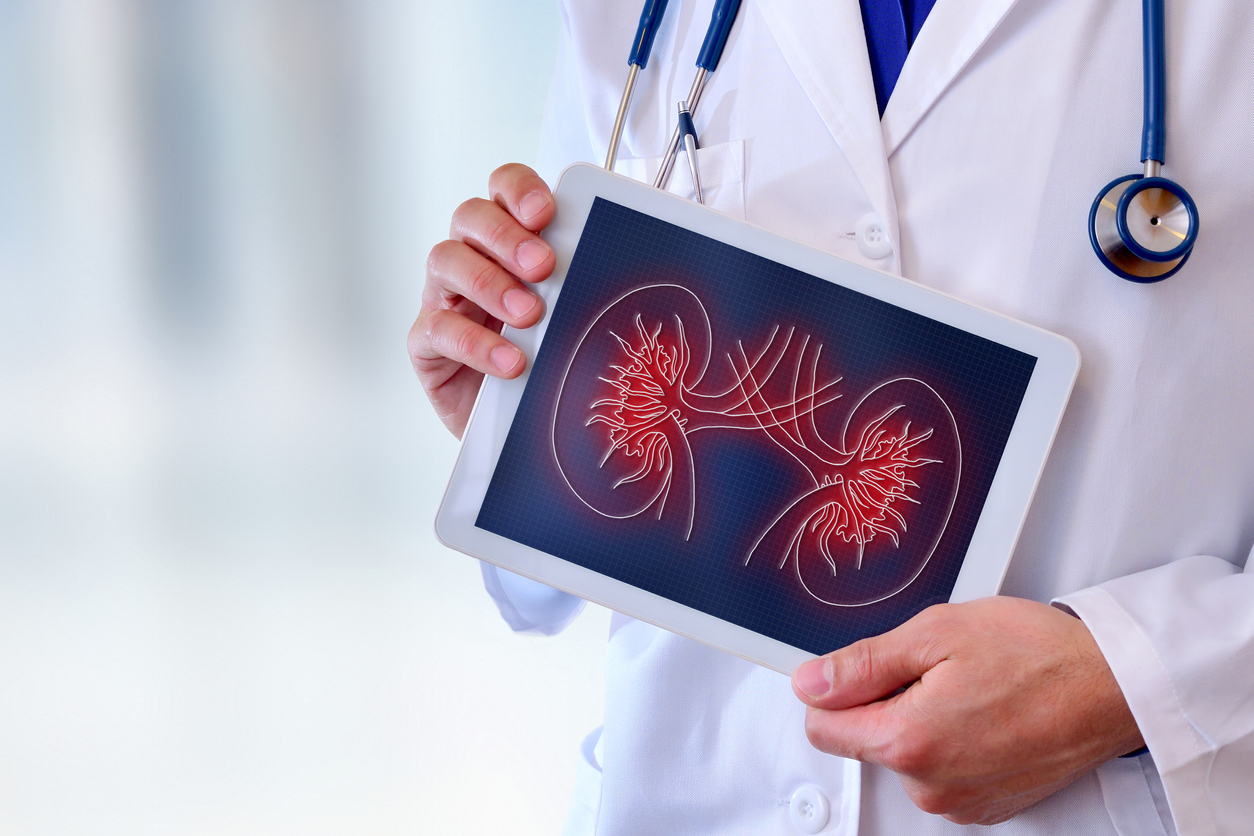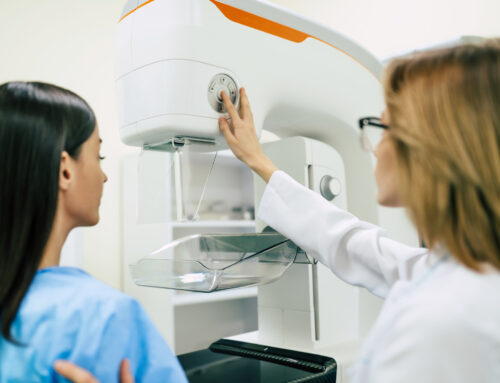
Our kidneys have wide-ranging functions, including removing waste and extra fluids, making red blood cells, keeping bones healthy, and maintaining blood pressure and pH levels.
Hence, improving kidney function and preventing kidney disease is a significant health goal, especially since kidney failure is irreversible. Once kidney health is severely compromised, the person will require either dialysis or a kidney transplant.
Although it is not always possible to prevent chronic kidney disease (CKD) and its complications, you can significantly reduce your risk of getting it, or slow its progression, by applying the following tips.
Eat Healthy Foods and Get Active
Eating healthy foods has always been a great starting place for improving kidney function and overall health. If you are wondering how to prevent kidney disease and improve kidney health, the best place to start is with a healthy diet. Here are some top tips to keep in mind:
- Consume large amounts of fresh fruits and vegetables.
- Include plenty of whole-grain foods in your daily diet, such as whole wheat, oats, and brown rice.
- Avoid eating too much protein. Research shows that a high dietary protein intake may worsen renal function long-term.
- Avoid foods with added sugars or high in saturated fat, trans fats, and cholesterol.
- Schedule an appointment with a qualified dietitian to create a personalized meal plan for improving kidney function.
Regular exercise is also an essential part of the equation for how to improve kidney function. Most healthcare providers recommend a minimum of 30 minutes of moderate physical activity daily. According to research, exercise training improves blood pressure, insulin resistance, and other metabolic factors, preserving renal function and preventing kidney disease.
Maintain a Healthy Weight
The mechanisms of how to prevent kidney disease are often interrelated. For example, if you are already working on eating a healthy diet and exercising regularly, you are off to a good start. Maintaining a healthy weight is easier with this two-pronged approach.
If you need to lose weight, ensure you are eating fewer calories than you burn. Your dietician can help you develop a realistic and healthy meal plan for weight loss and long-term maintenance.
Doing this can have a snowball effect on preventing kidney disease and maintaining kidney health. For instance, it can also improve the quality of sleep, which is one of the solutions for improving kidney function.
Make Sure to Stay Hydrated
Healthy kidneys love to function inside a hydrated body. This makes sense, given that body weight is comprised of 60-70% water. Your kidneys need plenty of water to flush out wastes in the form of urine.
Staying hydrated also keeps your blood vessels open, enabling unrestricted blood flow and the efficient delivery of nutrients.
Research shows that chronic, severe dehydration can lead to permanent kidney damage. Therefore, drinking more water is an easy, natural method for preventing kidney disease and improving kidney function.
Here are some tips for how to improve kidney function through proper hydration:
- Drink enough water to keep your urine a light-yellow color or colorless.
- The recommended amount is 8 glasses of water daily.
- The Institute of Medicine estimates that men need 3 liters of water and women need 2.2 liters of fluids daily.
- At the same time, avoid drinking too much water that is more than the recommended amount. Your kidneys will struggle to get rid of the water, and it will dilute the sodium content of your blood, resulting in a dangerous condition known as hyponatremia.
- It is also not advisable to drink too much water if you have had kidney failure.
Watch Your Salt Intake
Remember to keep your salt intake to a minimum as you map out your plan for how to prevent kidney disease. Eating foods that are high in salt can have a detrimental effect on kidney health and function.
That is because a high salt concentration causes a sodium imbalance, making it difficult for your kidneys to pull excess water from your body, leading to water retention and elevated blood pressure.
The truth is that most foods we eat are loaded with more salt than needed. For instance, the Center for Disease Control (CDC) states that the recommended daily salt intake should be less than 2,300 milligrams (mg). However, the average daily intake for Americans is more than 3,400 mg. Thus, a low-sodium diet is a common solution for people looking to improve kidney function.
Manage Your Blood Sugar
Diabetes occurs when your blood glucose or blood sugar is too high. Too much sugar in the blood can damage the tiny filters that make up your kidneys and your blood vessels.
If you have diabetes, the best way to prevent kidney disease is to maintain healthy blood sugar levels through diet, exercise, medication, and other treatment plans prescribed by your doctor.
Manage Blood Pressure
The importance of controlling your blood pressure cannot be overemphasized if you want to take good care of your kidneys. That is because high blood pressure constricts and narrows blood vessels in the kidneys causing permanent damage.
The first step to combatting this includes restricting salt intake, maintaining a healthy weight, and exercising. The good news is that there are affordable, easy-to-use digital blood pressure monitors that help you stay on track at home.
You can also talk to your doctor about tracking kidney function and taking blood pressure medication to ensure your blood pressure stays in the ideal range.
Target a Healthy Cholesterol Range
Maintaining a healthy cholesterol range is not only good for your heart health, but it also prevents your renal arteries from clogging. Remember that high blood sugar, high blood pressure, and high levels of LDL, or bad cholesterol, are not the only risk factors associated with impaired kidney function.
You are also at an increased risk of impaired kidney function if you have a family history of kidney failure. A way to stay on top of this is getting a regular screening from your doctor is crucial.
Limit Alcohol and Avoid Smoking
Avoid smoking or using tobacco products at all costs. In addition, make sure you limit your alcohol intake as much as possible (One drink per day for women and two drinks per day for men).
Smoking puts you at high risk of cardiovascular disease, which is linked to a higher risk of chronic kidney disease. Similarly, excessive drinking can cause high blood pressure and cholesterol levels, which are the top risk factors for kidney disease.
Avoid Taking Pain Medication (NSAIDs) in High Doses
Over-the-counter anti-inflammatories like Ibuprofen and Advil interfere with healthy blood flow to the kidneys and can cause damage. These NSAIDs (non-steroidal anti-inflammatory drugs) should not be used long-term without a doctor’s approval. If you need painkillers, follow the instructions on the medicine’s label, and use them only when needed.
Follow Your Doctor’s Advice
If you suspect or know that you have kidney disease, seeing a qualified doctor is one of the best remedies. A doctor can provide suitable treatment and offer the best lifestyle advice. While also being the go-to person for critical kidney disease prevention questions.
The good news is that there are trusted and qualified healthcare providers who are affiliated with the TopLine MD Alliance that can help you achieve your goal of keeping your kidneys healthy.
Your chances of success are higher if you receive personalized and care. Ready to find a specialized TopLine MD affiliated provider? Contact one today by visiting here.
The TopLine MD Alliance is an association of independent physicians and medical practice groups who are committed to providing a higher standard of healthcare services. The members of the TopLine MD Alliance have no legal or financial relationship with one another. The TopLine MD Alliance brand has no formal corporate, financial or legal ties to any of the affiliated physicians or practice groups.



